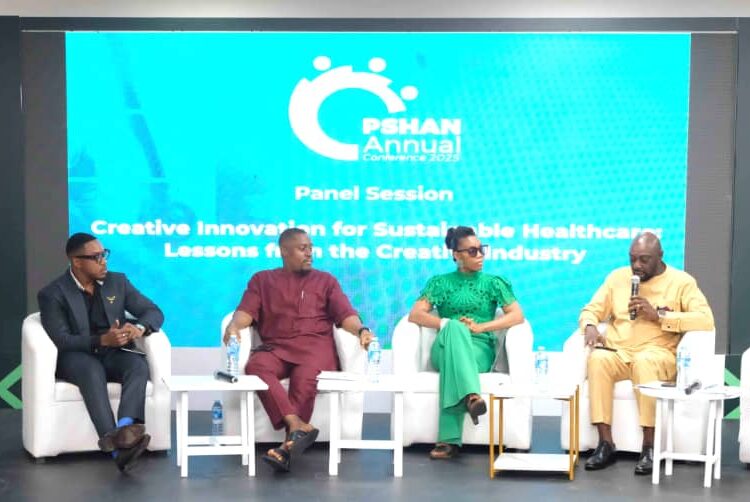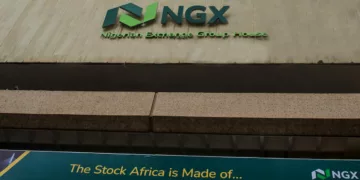The Private Sector Health Alliance of Nigeria (PSHAN) has set its sights on Artificial Intelligence (AI) and the creative industry as a move to reimagine the Nigerian healthcare system.
Recall the Nigerian health sector faces a multitude of challenges that hinder effective service delivery and equitable access to care. Chief among these are inadequate funding, dilapidated infrastructure, and a critical shortage of skilled medical personnel, many of whom are lost to brain drain as professionals seek better opportunities abroad.
Entertainment industry leaders, innovators, and storytellers converged at the PSHAN Health Investment Conference, at WHX Lagos, to explore how creative storytelling, technology, and community engagement could unlock new investments and solutions for Nigeria’s struggling health system.
The founder and CEO of Sand Technologies, Fred Swaniker, in his keynote address, averred that technology is the main solution to the challenges that have marred the Nigerian health sector for decades.
“For instance AI can transform every village into a world-class clinic, without waiting for doctors who may never come,” Swaniker stated.
Swaniker painted a vivid picture of what’s possible. With the exponential growth of global medical knowledge, AI can help fill the human resource gaps in Nigeria’s healthcare system, he explained, adding that, “Nurses and community health workers can be empowered with AI tools that hold up-to-date clinical expertise, tools that never go on strike, never get tired, and cost just a fraction of hiring full-time specialists. Imagine the best doctor in the world in every village, available 24/7, and costing just $20 a year. That is what AI can offer African healthcare.”
But technology alone is not enough, Swaniker averred, adding that storytelling, the lifeblood of Nigeria’s booming creative industry, is now being enlisted as a tool to mobilize cultural change and private sector support for healthcare. “We have seen what Nollywood and Afrobeats have done, they have built an economy with local resources, and they have done it with passion and authenticity. We need to tell healthcare stories the same way they’ve told theirs,” Swaniker added.
PSHAN believes that Nigeria’s health sector can tap into this storytelling genius to not only drive health education but to attract investments and shift public perception. “The creative sector understands how to connect with people emotionally. We want to direct that same energy toward healthcare, to make people care enough to invest, advocate, and act,” MD/CEO of PSHAN, Dr. Tinuola Akinbolagbe stated.
One of the conference’s main objectives was to demonstrate how the creative industry’s ability to shape culture can help change the narrative around healthcare, from one of despair to one of opportunity and impact. “It is not just about advocacy. It is also about investment. When doctors and healthcare workers tell their stories compellingly, it attracts attention and funding,” Akinbolagbe stressed.
This year’s PSHAN conference was themed “ The Creative Catalyst: Driving Sustainable Healthcare Solutions in West Africa.” From leveraging the wide reach of Nollywood to deploying AI-powered diagnostic tools, the message was clear: transforming Nigeria’s health sector will take more than stethoscopes and statistics, it will take stories, scale, and smart tech. “The future of healthcare in Nigeria isn’t just about more clinics or more funding. It is about shifting hearts and minds, and creating systems that work for everyone,” Akinbolagbe stated.
PSHAN itself was born from collaboration. Over a decade ago, a group of private sector leaders, including Aliko Dangote and Jim Ovia, who came together to find sustainable ways to strengthen Nigeria’s healthcare system. “The idea was to get the private sector to support health issues in Nigeria in a structured and impactful way. The government cannot do it alone,” MD/CEO of the Aliko Dangote Foundation and chair of the conference, Zouera Youssoufou, stated.
One of PSHAN’s flagship initiatives, Adopt a Healthcare Facility Program (ADHFP), invites private organizations to take responsibility for one primary health center in each of Nigeria’s 774 local government areas. So far, foundations like Jim Ovia’s, Herbert Wigwe’s, MTN’s, and several others have adopted dozens of centers, though the journey is far from over. “We still have a long way to go. But if the private sector steps up, we can bridge the gap between government efforts and community needs,” Youssoufou noted.
A trained physician turned digital storyteller, Dr. Egemba Chinonso Fidelis, popularly known as ‘Aproko Doctor’, said, “People don’t understand health the way we do in the hospitals.They may be literate but health-illiterate.I realized then: people don’t just want facts. They want to feel something. That’s how you teach, through stories.
He went on to produce a short film on cervical cancer that caused a surge in screening participation. Hundreds of women flooded a Lagos clinic after watching the five-minute drama on YouTube. “It was storytelling that moved them, not posters, not policies. If we want real change, we must meet people where they are and tell better stories,” he emphasized.











